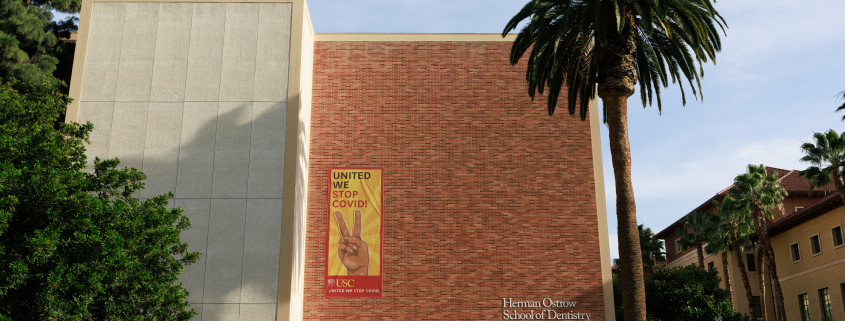University to provide second booster dose

USC Student Health will make a second booster dose for the coronavirus vaccine available for members of the community who are eligible, Chief Health Officer Dr. Sarah Van Orman said at a student media briefing Tuesday. This comes after the Centers for Disease Control and Prevention’s recommendation for people who are 65 and older and those over 50 with underlying health conditions to receive the additional dose. Student Health will not require the shot as of now, but it will likely be made available for students in the near future, Van Orman said.
“It’s about making it available, making sure everyone in our community is aware that, if they fall into those categories, that they can and should access the vaccine,” Van Orman said.
Current booster shot rates for students still remain around 85%. Van Orman said Student Health hopes to see this number reach close to 100% and continues to urge eligible students to get boosted.
The University has received results from nearly 18,000 post-spring break coronavirus tests, with 90 students self-reporting after antigen testing or testing outside of USC. About 140 individuals tested positive, yielding a student positivity rate of 0.7%, up slightly from last week’s rate of 0.5%
“Cases are actually remaining very low in L.A. County and in the rest of the U.S.,” Van Orman said. “So that number is again what we anticipated and reflects the students who may have picked it up during travel.“
The University continues to offer tests this week and has already received results from around 10,000 additional tests. Student Health is encouraging anyone with symptoms to stay home and get tested right away.
The University has seen an increase in BA.2 variant cases, according to Van Orman. Currently, around 25% of the positive tests received are of the BA.2 variant, compared to around 5% in January. Van Orman said this data is similar to that of the rest of the country. However, the majority of cases within the USC community are still BA.1 along with a few cases of the Delta variant.
“We’re concerned just like everyone else, because the BA.2 is, we believe, more transmissible, but the strategies remain the same as we would handle BA.1,” Van Orman said.
The vaccine appears to have the same amount of protection against severe disease and hospitalization for BA.1, the first detected omicron variant, and BA.2. symptoms of the variants are also similar. Van Orman said there is currently very little re-infection within the University community, particularly because most students are vaccinated or had coronavirus in December or January.
If outbreaks did occur within the community, Student Health would increase surveillance testing again for fully vaccinated students.
“We’re not seeing rising cases in the county, we’re not seeing a rise in hospitalizations and we’re not seeing a rise in deaths,” Van Orman said. “Right now, within the county, things look very stable.”

